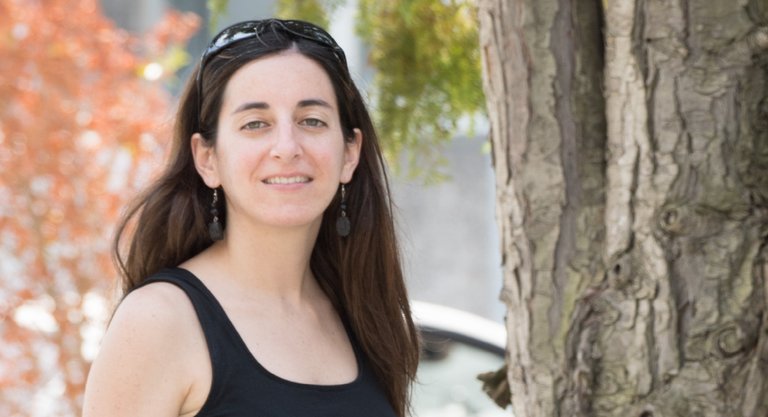"I unexpectedly found the way to open my research line"

For the biochemist Iraia García Santisteban, the world of research has always been attractive. Well, she confesses that she wanted to be a hairdresser when she was very young, with laughter, but later her references have focused on science, especially two professors at ESO, of natural sciences, and biology and chemistry (both women), and especially her aunt Marisol, who has had a rich career as a researcher.
“My aunt told me not to get involved in this,” Garcia recalls. “I’ve always loved it and I don’t regret it.” So he started studying biology at the university and, already in the second year, he started researching in a cell biology laboratory: “It was 2005, and we were investigating the impact of Prestige emissions on mussels.” He moved from cell biology to genetics and began his research with José Antonio Rodríguez Pérez, a professor of medicine.
“He is also a reference in my life, always willing to help. I did the master's degree with him and then the thesis on ubiquitinases. These proteins are present in cells and appear mutated in some types of cancer,” he explains. From that laboratory, he went to the NKI Netherlands Cancer Institute in Amsterdam with a postdoctoral fellowship.
Upon her return, Ana Zubiaga was with Elordieta in the lab she and Rodríguez share. After two years, he had the opportunity to make a teaching replacement, and then he saw that he also liked this job and that it could be a path. “I applied for the Ikerbasque scholarship, also Juan de la Cierva, and although I had a good curriculum, I did not get a scholarship. It’s not enough to be good, you have to be better than others.”
Even in teaching, he presented himself to the opposition and did not win. But, unexpectedly, another door opened: “The other girl who showed up with me won, Nora Fernández Jiménez. And just in his group a postdoctoral position was created. I showed up and they chose me. Then my direction completely changed. I started working with genomics and bioinformatics of complex diseases and contacted the clinic, the hospital of Las Cruces. So, together with some gynecologists from Las Cruces, I started with my own line!”
Endometriosis, a complex and unknown condition
She started researching endometriosis, which allowed her to complete her CV and win her next place. According to Garcia, endometriosis is a complex disease, and the reason why it was considered a research topic was partly personal, since it was diagnosed just the year before. “When I was diagnosed I didn’t know what it was; I barely heard it. Take note of how much misinformation there is.” Therefore, he began to investigate biomarkers for the diagnosis of endometriosis. “With the contribution of our research, in a few years you don’t have to wait so many years to be diagnosed.”
She is currently studying the effect of contaminants in our daily products and foods on the risk of endometriosis with Amaia Irizar Loibaz, with the collaboration of the student Zihara Alonso. To do the research, they need volunteers with endometriosis, who investigate their menstrual blood. To do so, they can write to the following addresses: iraia.garcia@ehu.eus; amaia.irizar@ehu.eus.
Although he talks passionately about his work, he does not hide the difficulties, and he mentions two obstacles at the end. On the one hand, the structural impediments to the combination of motherhood and research. Always have to look for funding. Knowing this, it is even more valuable to have refused to join a European project together with the team members, because Israel is involved.
Buletina
Bidali zure helbide elektronikoa eta jaso asteroko buletina zure sarrera-ontzian












